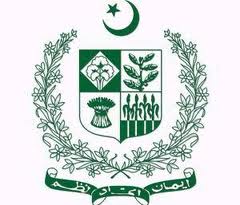The Tommy Koh Reader: Favourite Essays And Lectures – Tommy Koh
* World Scientific Publishing, 529 pages, non-fiction
A SMALL black-and-white sketch on the cover of The Tommy Koh Reader offers a partial glimpse of the author’s face.
The collection of Prof Tommy Koh’s speeches and written works is also a partial glimpse of one of Singapore’s most versatile, accomplished and outspoken sons. It would be difficult to give a full picture of his impact on academia, diplomacy, law, the arts, heritage and the environment in Singapore, but this selection does cover a range of the causes he has championed.
Koh and other members of the University Socialist Club “were very passionate about our quest to build a more democratic, just and equal world,” he wrote. As a student, he “hoped that we would find a socio-economic model which would achieve growth with equity”.
He is still voicing similar concerns. In 2010, he noted that Singapore’s founding fathers had a vision of a country like an olive, with a large middle class and relatively few people at the top and the bottom, and warned, “We must not allow the olive to become a pear”.
After graduating, Koh did his law pupilage with former chief minister David Marshall and then lectured at the National University of Singapore’s Faculty of Law. But in 1968 he was asked to represent the newly independent nation as its Ambassador and Permanent Representative to the United Nations. Although he later became dean of the Faculty of Law (1971-1974), he spent most of his professional life with Singapore’s Foreign Affairs Ministry.
An “active participant” in the republic’s diplomacy for 41 years, Koh proved to be one of its most formidable negotiators. He described his tactics on drafting the agenda as Chairman of the Preparatory Committee for the UN Conference on Environment and Development, the Earth Summit in 1991 and 1992: “My strategy was to maintain the pressure on the delegates until they agreed to compromise. By 4:30 a.m., the delegates were so exhausted that they asked me to draft a compromise. I called for a short recess, and with the help of about a dozen colleagues representing the various interest groups, succeeded in drafting a compromise. I got my agenda.”
Koh combined his legal and diplomatic skills as president of the Third UN Conference on the Law of the Sea (1981-1982), which wrote “a constitution for the oceans”. The 1982 Convention on the Law of the Sea “has survived the test of time”, he wrote, and “brought legal order, certainty and peace to the world’s oceans and seas. It is often regarded as one of the UN’s most important contributions to the rule of law in the world.”
The “son of a book-loving father and an art-loving mother”, Koh was the founding chairman of the National Arts Council (1991) and in 1992, chaired Singapore’s Censorship Review Committee.
“When an attempt was made to stigmatise forum theatre and The Necessary Stage”, he wrote to Singapore’s The Straits Times newspaper to defend them. But he failed “to protect performance artist Josef Ng from the wrath of law enforcement agencies”.
That was not the only time Koh criticised Government policies. He has been part of the establishment, but he has also been active in civil society.
“Non-governmental organisations by their very nature must be nuisances,” he told Asiaweek magazine in 1996. “But we need such positive nuisances.”
For example, he cited “Saving the trees of the Lower Peirce Reservoir from being cut down to make way for a golf course” as one of Singapore’s most important environmental achievements. Although it’s not mentioned in the book, Koh could take credit for that since he is patron of the Nature Society (Singapore), which led Singapore’s biggest protest campaign in 1992 – long before the dawn of social media.
NSS members first compiled an 80-page report about the biodiversity in the catchment area and the impact the proposed golf course would have on water quality and the environment. When the Government did not respond, they organised a campaign that collected around 17,000 signatures. The proposal was eventually shelved.
This collection will resonate with many Malaysians and Singaporeans but readers further afield may have to resort to the Internet to check out some cryptic acronyms and references. An index and more footnotes in later editions would be helpful.






More Stories
Everything You Need to Know Before You Fill an NGO Online Registration Form
Insurance As a Device For Handling Risk
Criminal Defense Attorney – The History